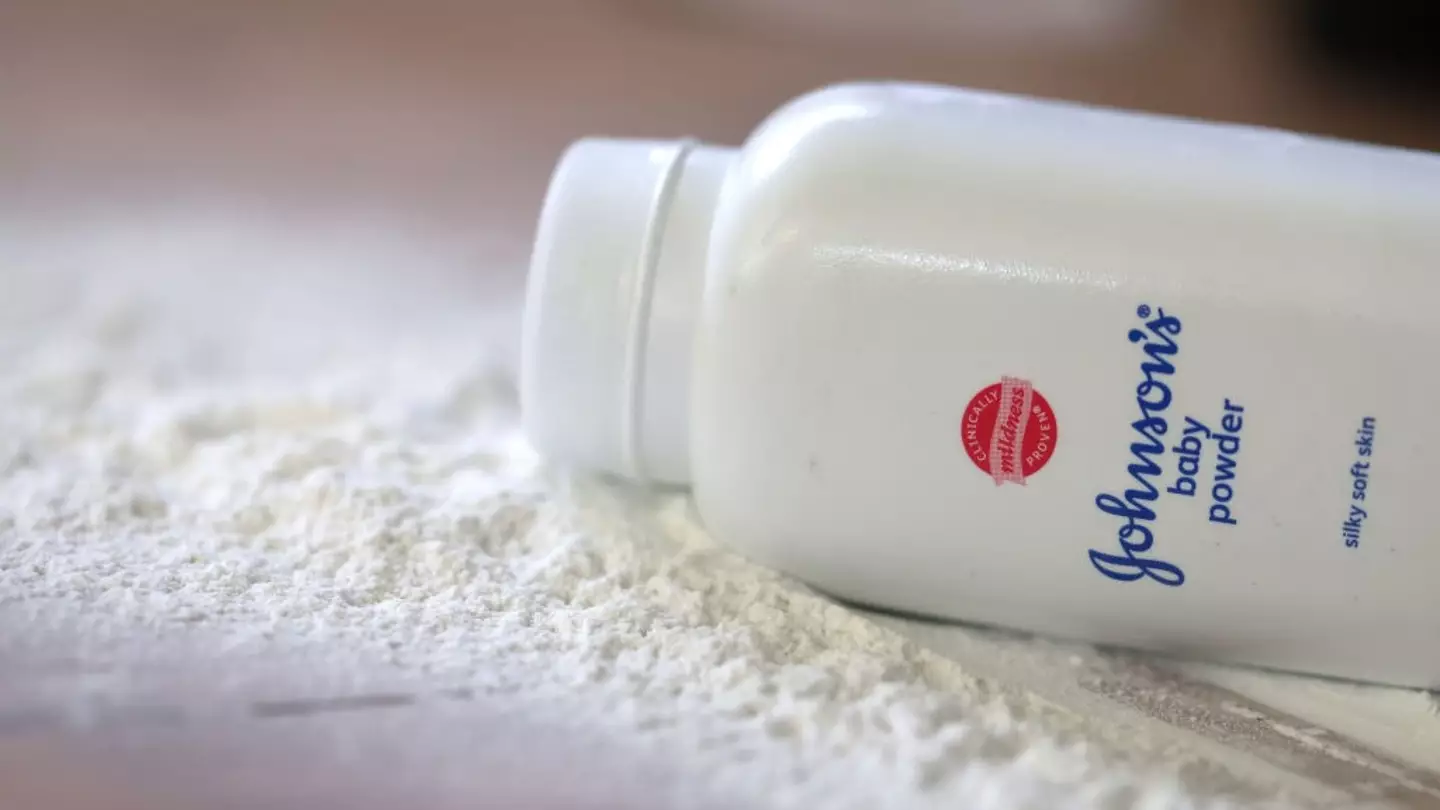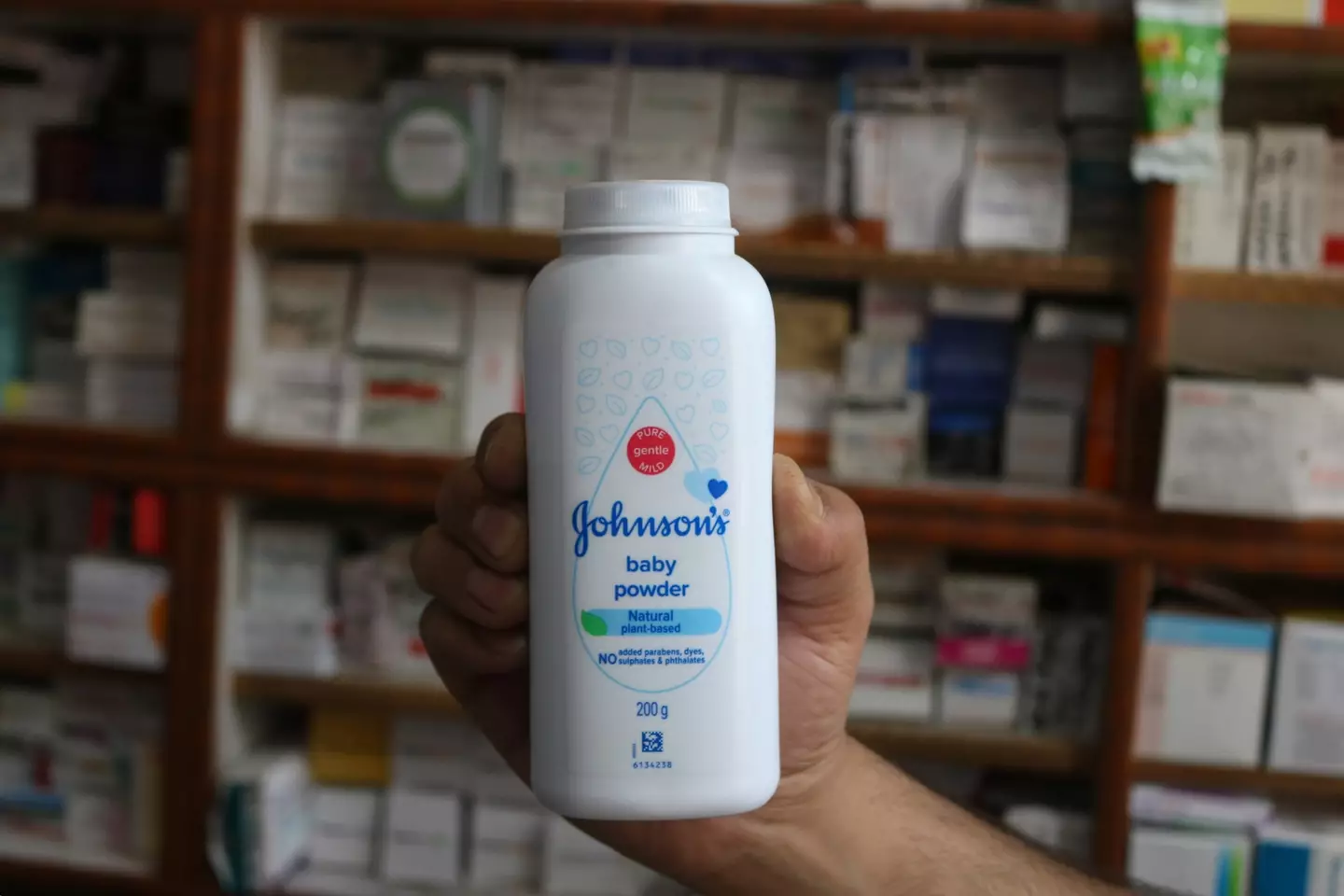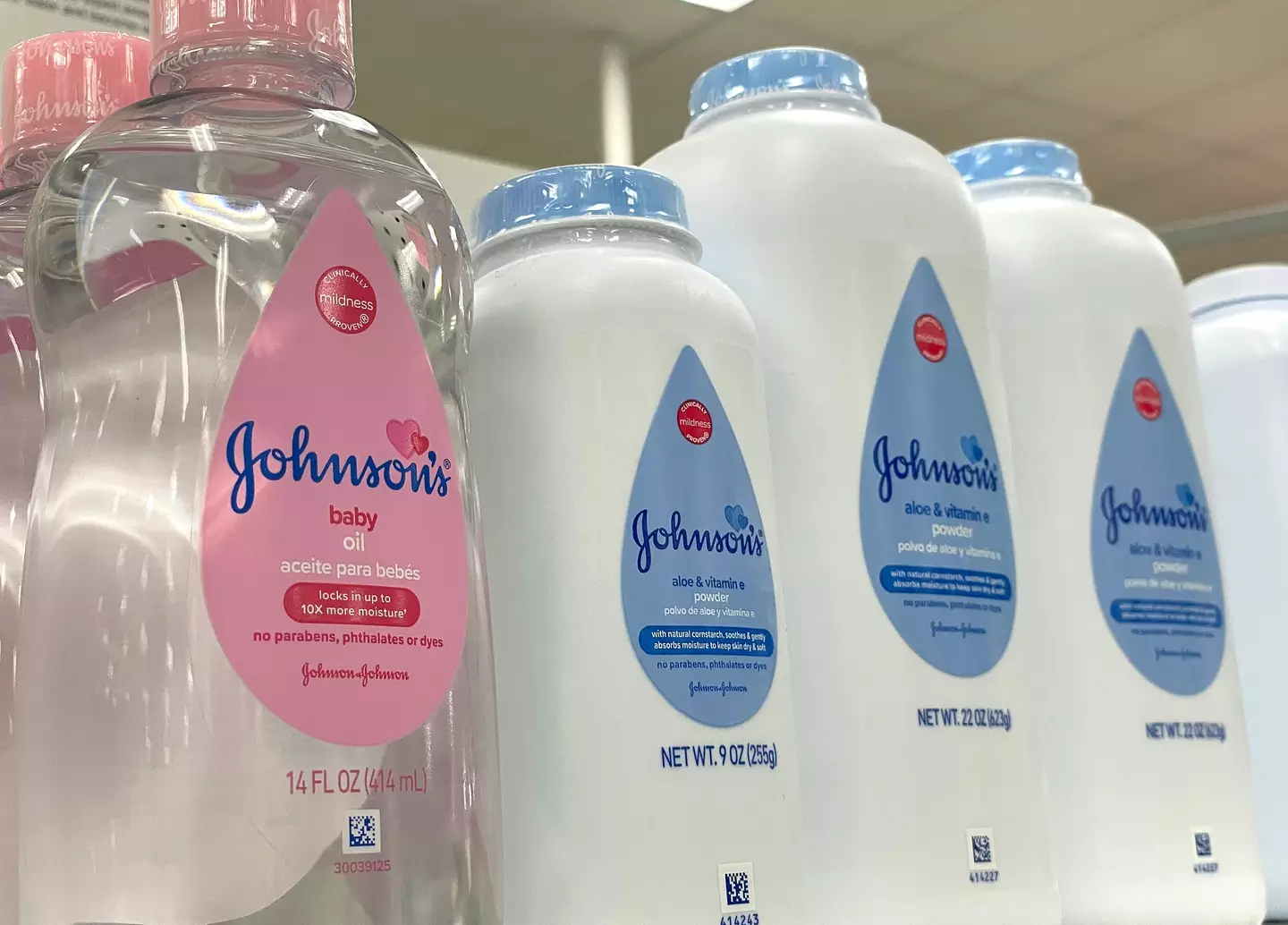
Thousands of people are taking legal action against pharmaceutical giant Johnson & Johnson over claims contaminated Baby Powder may have caused them to develop cancer.
The lawsuit, launched by major UK firm KP Law, says the US company knowingly sold powder contaminated with asbestos from fibrous forms of talc.
As many as 3,000 people involved in the case claim they or a loved one developed mesothelioma or ovarian cancer as a direct result of using Johnson's Baby Powder.
It's claimed J&J were aware their product contained fibrous forms of talc, as well as tremolite and actinolite, both classed as asbestos, as early as the 1960s, though the company has strongly denied these allegations.
Advert
The case says J&J 'concealed' the risk to the public for decades, by not citing the dangers on its packaging, only replacing the talc with cornstarch in its baby powder in the UK as recent as 2023.

According to Michael Rawlinson, representing the people bringing the claim, 'there exist very few, if any, commercially exploited talc deposits in the world which do not contain asbestos and that all of the mines supplying the defendants contained asbestos.'
The claim alleges that J&J were aware of the contamination as early as the 1960s, with an internal document from 1973 reported to say: "Our baby powder contains talc fragments classifiable as fiber. Occasionally sub-trace quantities of tremolite or actinolite are identifiable."
In response to this, J&J said the letter was discussing how regulations could change, meaning talc fibres would be defined as asbestos, arguing with would have been wrong.
Advert
Later that year, the pharmaceutical company's executives looked into a potential patent for a method to remove the asbestos fibres from talc.
"We may wish to keep the whole thing confidential rather than allow it to be published in patent form and thus let the whole world know," the end of the letter read, as per the BBC.

One person involved in bringing the case is Janet Fuschillo, who used Johnson's Baby Powder since the 1960s and was diagnosed with ovarian cancer seven years ago.
"I used talc on myself and all four of my children. I used talc when I changed nappies, after baths, all the time, for close to 50 years," the 75-year-old said.
Advert
"It’s a source of great concern and anger that I used talc on my children."
Does talcum powder cause cancer?
Talc itself is a naturally occurring mineral made of magnesium, silicon, and oxygen, however, some talc deposits can contain asbestos in its natural form.
However, asbestos is known to cause cancer, meaning talcum powder containing asbestos could increase the risk of cancer.
According to the NHS, mesothelioma, which is most commonly found in the tissue around the lungs, is almost always caused by asbestos exposure.
Advert
Rawlinson noted that when a bottle of Baby Powder is squeezed or shaken it can leave 'clouds' of the powder lingering in the air 'for a very long time after use', meaning they would be heavily inhaled by the person using it.
A spokesperson for Johnson & Johnson's subsidiary, Kenvue, told LADbible Group: "We sympathise deeply with people living with cancer. We understand that they and their families want answers - that’s why the facts are so important.
The safety of JOHNSON’S® Baby Powder is backed by years of testing by independent and leading laboratories, universities, and health authorities in the UK and around the world.
"The high-quality cosmetic grade talc that was used in JOHNSON’S® Baby Powder was compliant with any required regulatory standards, did not contain asbestos, and does not cause cancer.”
A spokesperson for Johnson & Johnson also told LADbible Group that Kenvue, which separated from the company in 2023, 'retained the responsibility and any purported liability for talc-related litigation outside of the United States and Canada'.
